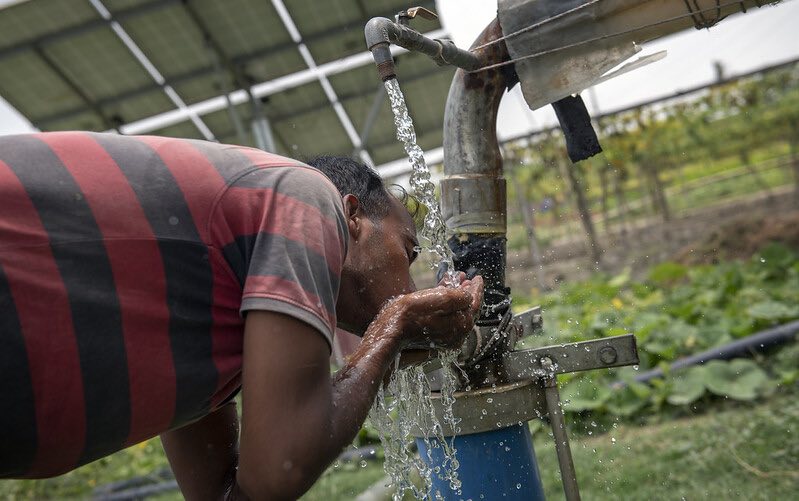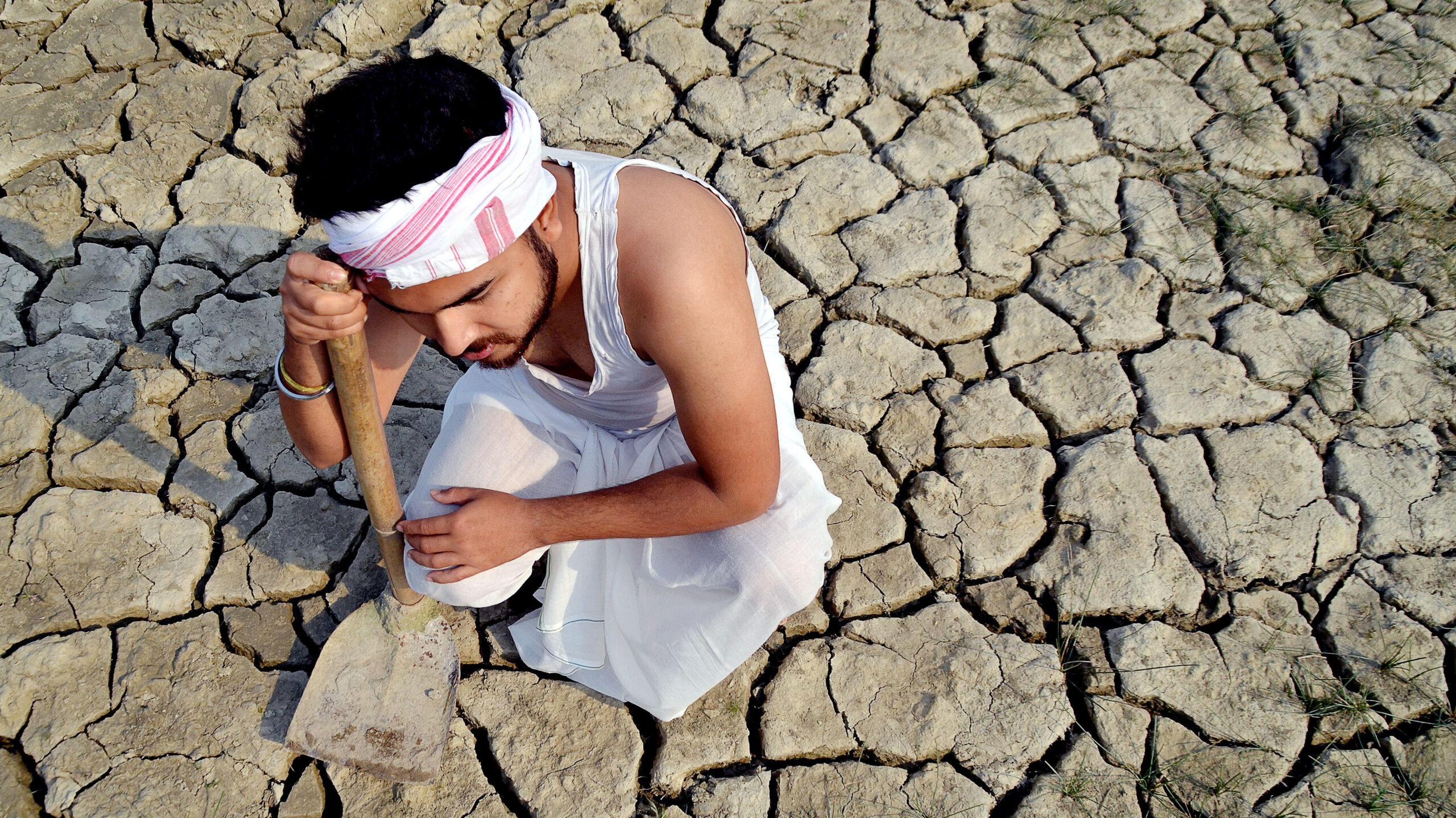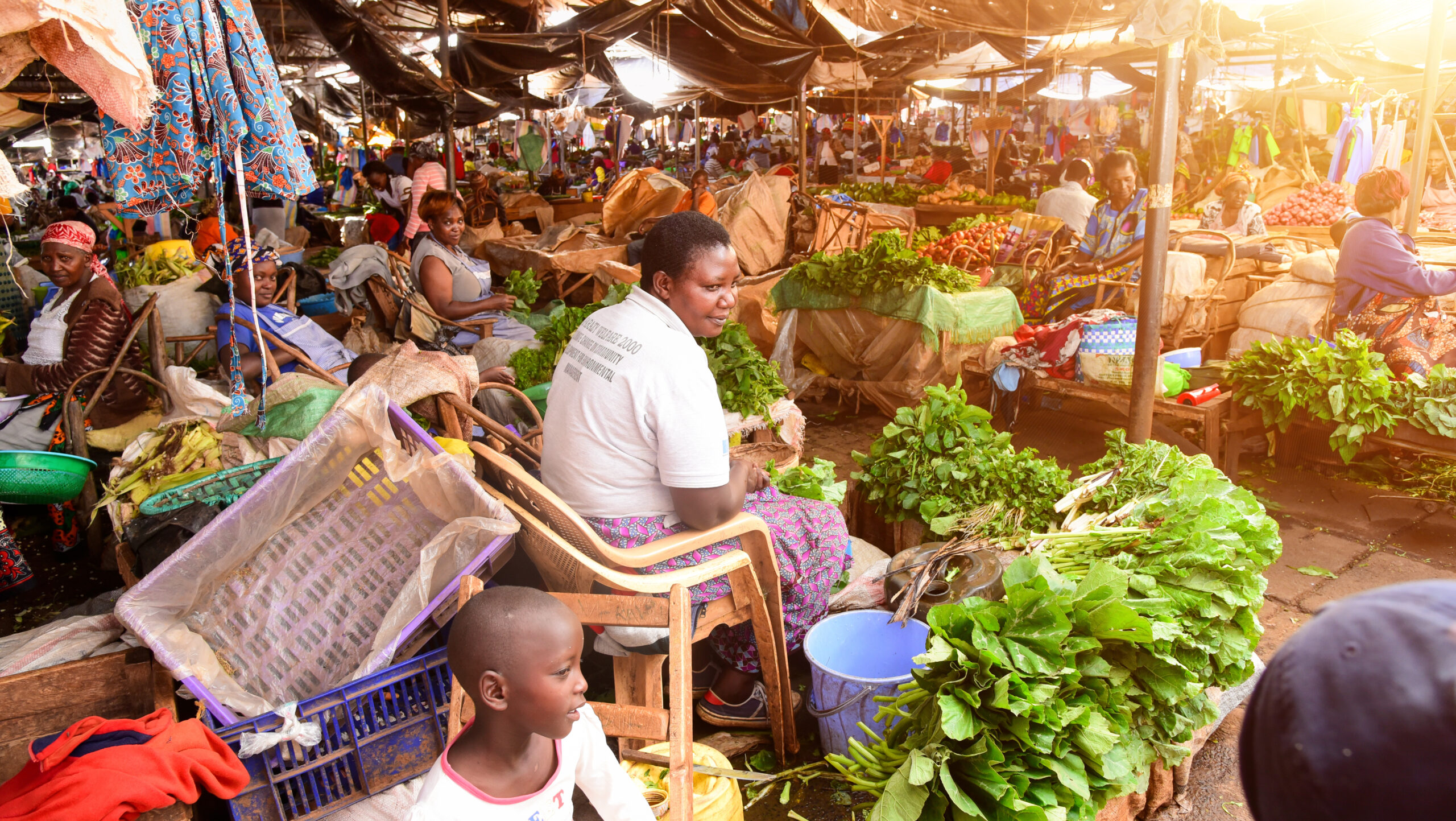With adverse climate change impacts growing in number and intensity, many world leaders at the recent COP26 meetings in Glasgow developed joint, ambitious aspirations and plans, including to phase “down” investments in coal, phase out subsidies for fossil fuels, halt deforestation, reduce methane emissions by 30% by 2030, and to direct financing more toward clean energy technologies. All have the goal to keep cutting emissions to reach “net zero” by mid-century. A simple definition of net zero is that new emissions do not surpass emissions reductions.
An assessment of the contributions of the CGIAR Research Program on Water, Land and Ecosystems (WLE) to improve rural energy access for smallholder farmers and entrepreneurs shows full alignment with the United Nations Framework Convention on Climate Change (UNFCCC) Race to Zero global campaign for decarbonizing economies.
Food systems contribute about a quarter of total greenhouse gas emissions every year, and with more rapid progress in the decarbonization of the energy sector, the food system—facing growing demand linked to urbanizing and wealthier populations—might soon account for a yet larger share of total emissions. WLE’s policy and action research has contributed to improving access to clean energy sources for small farmers and rural entrepreneurs while also growing agricultural productivity sustainably.
Key areas of intervention
WLE has worked on energy policies and provided investment recommendations; developed cost and feasibility frameworks; created businesses models; conducted pilot projects to provide an evidence base for scaling up innovative energy initiatives; considered non-agricultural uses of energy where relevant to food systems; and implemented capacity-building activities. Here are some highlights from WLE’s research that directly support the UNFCCC’s Race to Zero campaign:
- WLE undertook an economic analysis to understand the impacts of a carbon tax on fossil fuels, water and food security. The analysis found that a fossil-fuel tax would not significantly affect food security, and could be a boon to global food security if resulting emissions reductions lower the climate change impacts on food production systems—directly supporting the Race to Zero campaign.
- WLE developed the first-ever homegrown Ethiopia TIMES energy systems model for Ethiopian energy stakeholders to identify least-cost solutions to meet the country’s rising electricity demand while improving energy security, promoting access to modern energy sources and mitigating greenhouse gas emissions. To ensure local ownership, an Ethiopian energy modeling group was formed and trained through a series of face-to-face and online workshops.
- An energy checklist for irrigation systems was developed to support irrigation development and rehabilitation specialists to jointly improve water and energy productivities, and to avoid tradeoffs that would result in increased energy use in irrigation investments that strive to reduce irrigation water use.
- Frameworks were developed to support rural energy access such as an integrated framework for off-grid solar irrigation that calls for the need for multi-sectoral alignment and coordination in policy and regulation.
- A key investment under WLE was the development of an online solar suitability tool using a geographic information system (GIS)-based multi-criteria evaluation (MCE) technique, which includes solar irradiation, slope, groundwater levels, aquifer productivity, groundwater storage, groundwater sustainability, population, roads and travel time to markets.
- National-level solar suitability maps were also developed to help public and private investors choose the right locations to unlock the full potential of solar based photovoltaic pumping for irrigation.
- Solar irrigation pilot projects were implemented in Africa south of the Sahara and South Asia to test whether solar pumps could provide smallholder farmers with affordable and sustainable irrigation.
- WLE embarked on the development of various business and finance models to help identify how sellers and buyers of energy technologies can benefit from the exchange of such technologies while lowering barriers to entry.
- WLE research also investigated innovative approaches for the reuse of available waste materials helping women and young people to transform local waste into business opportunities. Through different partnerships, initiatives have improved energy access, reduced waste, and empowered women in Kenya, Uganda and Ghana, among other countries. These measures were supported by capacity building in the form of development and expansion of training materials and university curriculums.
A call for One CGIAR
The urgency of accelerating rural energy access for agricultural transformation is acute, as evidenced by intensifying climate change, growing food insecurity and malnutrition, and severe environmental degradation. There is much to do and One CGIAR has a key role to play in providing information, supporting access and piloting scalable energy interventions to support the achievement of multiple impacts for the poorest and most food-insecure women and men farmers and entrepreneurs.
Several One CGIAR Initiatives that will begin in 2022 following the closure of the WLE program are focused on advancing rural energy security. Key among these are the NEXUS Gains Initiative with an explicit focus on accelerating rural energy access; the MITIGATE + Initiative with a focus on low-carbon agricultural futures, and the Rethinking Food Markets and Value Chains Initiative which aims to strengthen energy use in the postharvest sector. Several proposed regional initiatives also consider energy as a key factor for rural wellbeing and environmental sustainability. These initiatives, working in partnership with national and international partners, non-governmental organizations and the private sector, aim to support climate change adaptation and mitigation, while jointly improving energy and food security. One CGIAR means business in the Race to Zero campaign!
Marilia Magalhaes is an independent consultant; Claudia Ringler is Deputy Director of the CGIAR Research Program on Water, Land and Ecosystems (WLE) and Deputy Director of IFPRI’s Environment and Production Technology Division.
This post also appears on the WLE Thrive blog.







